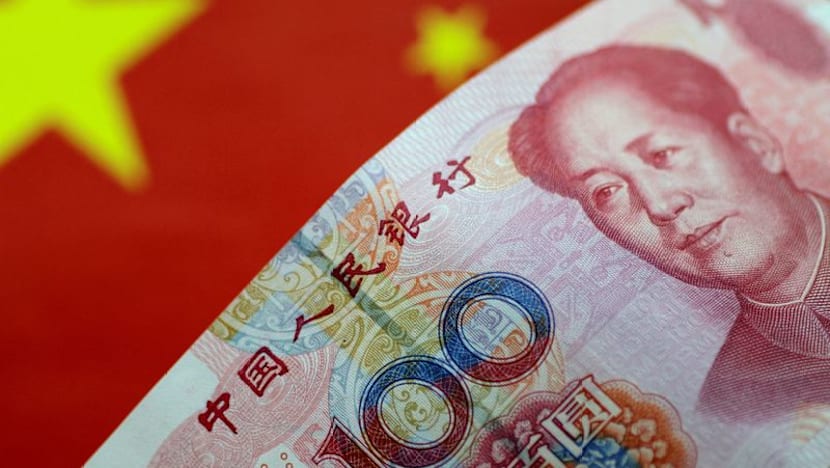Business
China’s New SCO Development Bank Aims to Reshape Global Finance

China is spearheading a significant initiative with the proposed establishment of a development bank under the auspices of the Shanghai Cooperation Organization (SCO). This development bank aims to challenge the influence of established Western financial institutions, specifically the World Bank and International Monetary Fund (IMF). Analysts suggest that this new multilateral lender could provide essential support to countries facing Western sanctions and offer emerging economies an alternative source of funding, reducing their reliance on the US dollar.
During a recent SCO summit held in Tianjin, Chinese President Xi Jinping emphasized the urgency of creating the development bank. He stated, “It should be established as soon as possible to provide stronger support for the security and economic cooperation of member states.” The SCO includes nations such as Russia, Iran, Kazakhstan, Kyrgyzstan, Tajikistan, Uzbekistan, India, Pakistan, Belarus, and China itself.
Potential Impact on Global Finance
If successfully launched, the SCO Bank could join the ranks of other Chinese-led financial institutions like the Asian Infrastructure Investment Bank (AIIB) and the BRICS New Development Bank (NDB). These entities aim to reshape global finance by loosening the dollar’s grip on international trade and investment.
Charles Chang, a finance professor at Fudan University in Shanghai, pointed out that the scale of Chinese banks could significantly impact this initiative. “There’s incredible capital accumulation there. As a result, when and how they move will necessarily have a big impact,” he said. The proposed bank comes at a time when tensions regarding tariffs are escalating, and the dollar continues to dominate global finance. According to US Treasury Secretary Scott Bessent, the United States has exerted “extraterritorial power with the dollar,” complicating transactions for nations like Russia, China, and Iran that are seeking alternatives.
Despite the ambitious objectives, questions surrounding the new bank’s structure and governance remain unresolved. Analysts are keen to learn how investments and debt servicing will be determined, whether the yuan will dominate transactions, or if a mix of member currencies will be used. “The structure of the internal governance is key,” Chang stated.
First Steps Toward Establishment
An official statement from the SCO shortly after Xi’s announcement on September 1 confirmed the bloc’s intention to establish the bank and expedite discussions regarding its operational framework. Xi articulated a vision of a world undergoing “tumultuous change” and emphasized the need for a financial institution that reflects the realities of contemporary global governance.
While specifics about the timeline and operational details have yet to be disclosed, analysts predict the SCO Bank will initially start small, much like the AIIB did when it launched focusing primarily on Asia’s infrastructure needs. “We don’t know much at this point, but like many Chinese-led global governance initiatives, it will likely start small and grow into itself over time,” said Joe Mazur, a senior analyst at the Trivium China think tank in Beijing.
The bank is expected to prioritize infrastructure and development programs. Chang indicated that this focus aligns with China’s Belt and Road Initiative (BRI), which aims to enhance global connectivity through large-scale infrastructure projects.
Countries under Western sanctions, such as Russia and Iran, stand to gain significantly from an institution that operates outside the US dollar system. The bank could provide vital support for their economies and trade relationships. Chang noted that critical trade partners would likely benefit, especially those in Southeast Asia and the former Soviet Republics.
While there is potential for the SCO Bank to serve as an alternative to Western-led lenders, skepticism exists regarding the transparency of its operations. Critics have long criticized the IMF and World Bank for imposing stringent conditions on loans, which often include difficult austerity measures.
In a commentary published by Xinhua, Maya Majueran, director of BRI Sri Lanka, highlighted that “the age of unipolar dominance was over.” She asserted that the SCO symbolizes a shift towards a new paradigm of global development led by emerging economies, one that emphasizes intra-South trade and collaboration.
As the SCO Bank continues to take shape, its capacity to establish credibility and ensure transparent lending practices will be critical. The success of the initiative hinges on its ability to attract member states, secure funding, and provide an alternative to existing financial systems dominated by the dollar.
While analysts remain cautious, the SCO Bank could offer a significant alternative for nations looking to reduce their dependence on Western financing and explore new avenues for economic cooperation. “Right now we are seeing intention more than execution, so I’m eager to see how they really roll it out going forward,” Chang concluded.
-

 Business5 months ago
Business5 months agoKenvue Dismisses CEO Thibaut Mongon as Strategic Review Advances
-

 Lifestyle4 months ago
Lifestyle4 months agoHumanism Camp Engages 250 Youths in Summer Fest 2025
-

 Sports4 months ago
Sports4 months agoDe Minaur Triumphs at Washington Open After Thrilling Comeback
-

 Sports5 months ago
Sports5 months agoTupou and Daugunu Join First Nations Squad for Lions Clash
-

 Top Stories5 months ago
Top Stories5 months agoColombian Senator Miguel Uribe Shows Signs of Recovery After Attack
-

 World5 months ago
World5 months agoASEAN Gears Up for Historic Joint Meeting of Foreign and Economic Ministers
-

 Health4 months ago
Health4 months agoNew Study Challenges Assumptions About Aging and Inflammation
-

 Business5 months ago
Business5 months agoOil Prices Surge Following New EU Sanctions on Russia
-

 Entertainment4 months ago
Entertainment4 months agoDetaşe-Sabah Violin Ensemble Captivates at Gabala Music Festival
-

 Entertainment4 months ago
Entertainment4 months agoBaku Metro Extends Hours for Justin Timberlake Concert
-

 Top Stories5 months ago
Top Stories5 months agoRethinking Singapore’s F&B Regulations Amid Business Closures
-

 Business5 months ago
Business5 months agoU.S. House Approves Stablecoin Bill, Sends to Trump for Signature









